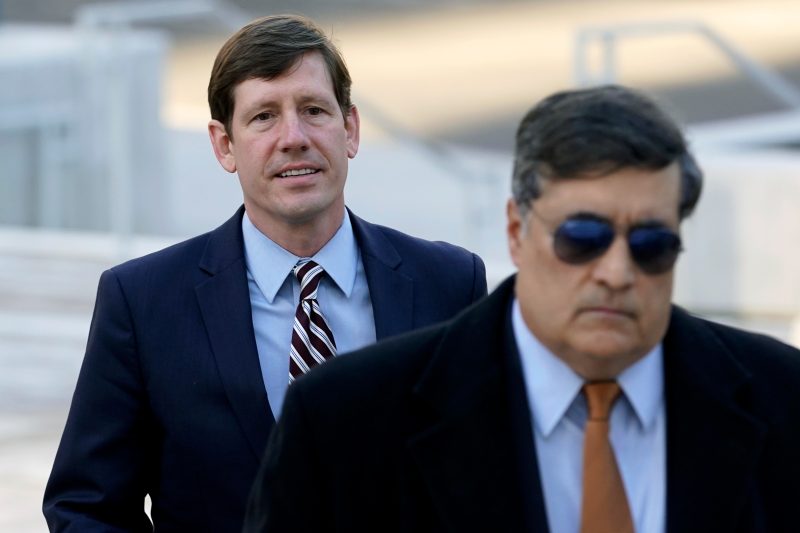
Former Tenn. state senator sentenced to 21 months in campaign finance scheme
A former Tennessee state senator was sentenced Friday to nearly two years in prison for violating campaign finance laws while running for Congress — charges the Republican once described as a “witch hunt” before he pleaded guilty to them.
Brian Kelsey, who unsuccessfully tried in March to take back his guilty plea, was sentenced to 21 months in prison after a hearing in the U.S. District Court for the Middle District of Tennessee.
He was accused of concealing the transfer of $91,000 to a national political organization that supported Kelsey’s 2016 congressional campaign. The 45-year-old can no longer run for state office, according to his attorney.
Henry Leventis, the U.S. attorney for the Middle District of Tennessee, said at a news conference Friday that Kelsey’s crimes were calculated, complex and multifaceted.
“And they denied Tennesseans the right to transparency, which would allow them to make informed decisions about their vote,” Leventis added.
Kelsey, whose sentence is expected to start in October, apologized for the “mistake” in a statement.
“I will always regret it,” Kelsey said. “I am sorry for letting down my constituents and the public.”
Joshua Smith, 46, who owns a Nashville social club that Kelsey belonged to and was accused of conspiring with Kelsey, was also sentenced Friday. Smith, who pleaded guilty in October to soliciting money in support of Kelsey’s campaign, was sentenced to five years of probation.
“The fact that he did not get prison time or any jail time was fair,” Phillip Georges, Smith’s attorney, said. “His involvement was lower. He did come forward; he was a substantial cooperator. And the judge still sent a pretty strong message with a serious sentence.”
Kelsey was elected to Tennessee’s General Assembly in 2004 before moving to the state Senate in 2009. He was one of several Tennessee Republicans to run for a U.S. House of Representatives seat in 2016, according to the Tennessean, but lost the nomination to Rep. David Kustoff, who remains in office.
In October 2021, a federal grand jury indicted Kelsey for conspiracy, alleging that he funneled “soft money” — or funds not subject to federal limitations or reporting regulations — to a federal campaign committee to benefit his congressional bid.
The indictment claimed Kelsey transferred $66,000 from his state Senate campaign and $25,000 from a nonprofit that advocated for legal justice issues to an organization that funded advertisements in support of Kelsey in 2016. The organization, later revealed to be the American Conservative Union, contributed $80,000 to Kelsey’s campaign, the indictment alleges.
The moves hid from voters how Kelsey raised and spent campaign money, said acting assistant attorney general Nicole Argentieri, with the Justice Department’s criminal division. She added: “The integrity of our elections is essential to democracy, and voters should know how candidates raise and spend campaign dollars.”
In 2002, Congress passed the Bipartisan Campaign Reform Act, which prevents political candidates from spending or soliciting “soft money” for federal elections.
A few days after he was indicted, Kelsey tweeted that the charges were a “political witch hunt” and that President Biden’s administration was “trying to take me out because I’m conservative.”
In October, Smith pleaded guilty to helping solicit and spend $25,000. The next month, Kelsey pleaded guilty to his five charges. He did not run for reelection in the state Senate. Kelsey, who was also an attorney, had his state license suspended in December.
In March, Kelsey said in court documents that he wanted to reverse his guilty plea because he had “an unsure heart and a confused mind” at the time of his decision. He claimed that his father had pancreatic cancer (he died in February) and he was caring for his twin sons, who were born in September.
But Waverly Crenshaw Jr., the court’s chief district judge, rejected Kelsey’s change-of-plea request in May.
On Friday, Kelsey told the court in Nashville that he was “truly sorry” for his actions, according to the Associated Press.
“I knew I was taking a risk,” he said, “and yet I did it anyway.”
